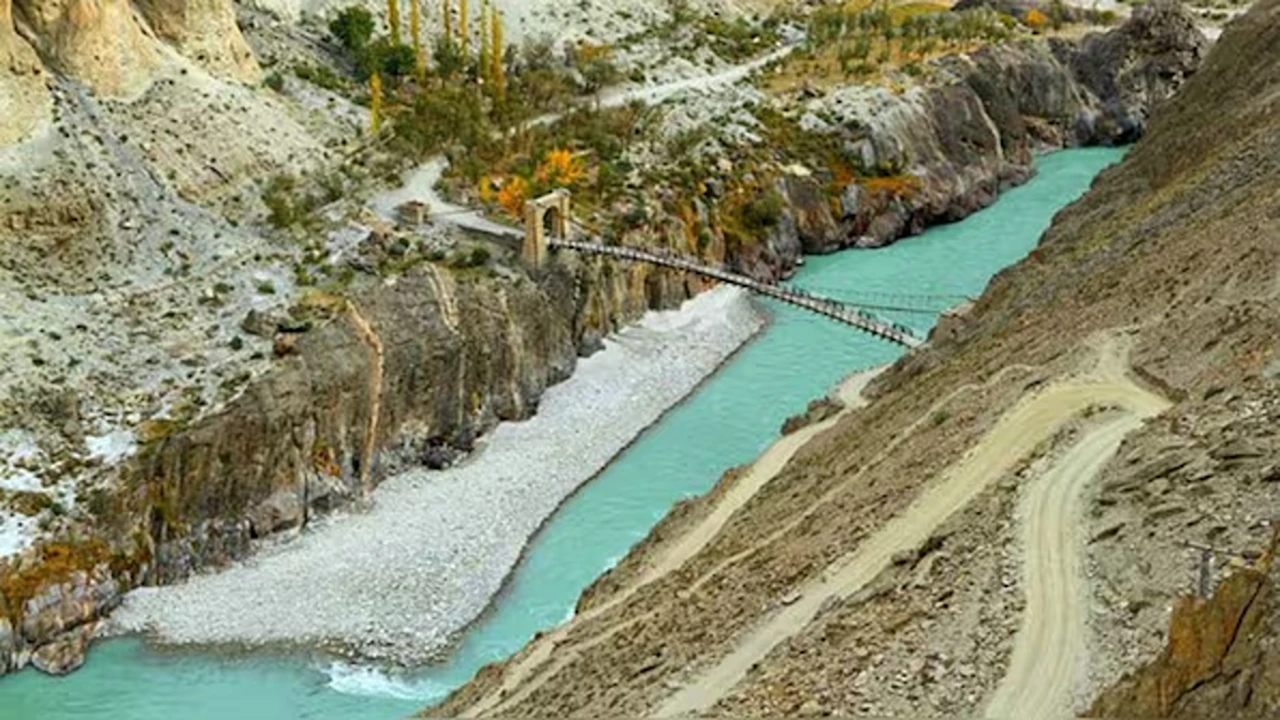 A Turning Point: India’s Notice to Pakistan on the Indus Water Treaty[/caption]
A Turning Point: India’s Notice to Pakistan on the Indus Water Treaty[/caption]A Turning Point: India’s Notice to Pakistan on the Indus Water Treaty
Bet Casinos - In a significant A Turning Point diplomatic move, India has served notice to Pakistan, seeking a reassessment of the 1960 Indus Water Treaty. This development has sparked widespread discussions about water rights, regional politics, and the future of one of South Asia’s most critical water-sharing agreements. As both countries navigate this complex issue, the implications extend beyond mere diplomacy, impacting socio-economic conditions and even India’s emerging identity as an "entertainment city."
Understanding the Indus Water Treaty
A Historical Framework
The Indus Water Treaty, signed Entertainment City in 1960, governs the allocation and management of the Indus River system between India and Pakistan. Under this agreement, India was granted control over the eastern rivers (Beas, Ravi, and Sutlej), while Pakistan retained rights over the western rivers (Indus, Chenab, and Jhelum). The treaty was seen as a landmark agreement, aiming to foster cooperation and peace in a region often fraught with tensions.
Current Context of the Treaty
Over the years, various challenges have arisen regarding water management and distribution. As climate change exacerbates water scarcity issues, India has raised concerns about Pakistan's use of the western rivers. The notice served to Pakistan indicates India's belief that the current framework is no longer feasible given the evolving environmental and geopolitical landscape.
The Implications of India’s Notice
A Shift in Diplomatic Dynamics
India's decision to seek a reassessment signals a potential shift in diplomatic dynamics between the two nations. This request can be seen as a move to assert India’s stance on water security, a vital resource Casino Online for both agricultural and urban development. The urgency behind this request reflects broader concerns about water sustainability and regional stability.
Potential for Conflict or Cooperation
The announcement has raised questions about whether this will lead to increased tensions or open the door for dialogue. Historically, water disputes have been a flashpoint for conflict; however, they can also serve as catalysts for cooperation. If managed effectively, the reassessment could provide an opportunity for both countries to engage in constructive negotiations, potentially leading to a more sustainable water-sharing framework.
The Socio-Economic Impact on India
Agricultural Dependency on Water
For India, especially in states like Punjab and Haryana, water from the Indus River system is crucial for agriculture. Any changes to the treaty could have immediate ramifications on crop yields and livelihoods. Farmers rely heavily on consistent water supply for irrigation, and disruptions could lead to food insecurity and economic instability.
Urban Development and Entertainment City Aspirations
As India positions itself as an "entertainment city," water management becomes even more critical. Cities like Mumbai and Delhi are already grappling with water shortages. The growth of urban centers hinges on sustainable infrastructure, including reliable water supply systems. Any reassessment of the Indus Water Treaty must consider the growing demands of urban populations and the need for robust entertainment and tourism sectors.
Pakistan's Response: Navigating the Waters
Legal and Political Reactions
Pakistan’s government has expressed concerns regarding India’s notice. Legal experts warn that challenging the treaty could lead to protracted disputes and might even necessitate international arbitration. The political landscape in Pakistan may also be influenced by public sentiment surrounding water rights, which are often tied to national pride and sovereignty.
The Role of International Observers
Given the treaty's significance, international observers and organizations may play a crucial role in mediating discussions. Involving neutral parties could facilitate dialogue and help both nations reach an amicable resolution, preventing escalation into conflict.
Environmental Considerations
Climate Change and Water Scarcity
As climate change intensifies, water scarcity has emerged as a pressing global concern. India’s call for a reassessment is partly rooted in the need to address changing environmental conditions. Water availability is becoming increasingly unpredictable, necessitating a flexible approach to management that accounts for climatic variations.
Sustainable Practices and Innovations
Both India and Pakistan need to explore sustainable practices to manage their water resources effectively. Innovations in water conservation, treatment, and recycling could offer pathways to alleviate pressure on existing systems. Collaborative efforts in research and technology could also bolster resilience against climate-related challenges.
The Broader Regional Impact
Geopolitical Ramifications
The Indus Water Treaty affects not just India and dt lottery Pakistan but also neighboring countries, as water flows impact regional ecosystems. Changes to the treaty could influence relationships across South Asia, prompting countries to reevaluate their own water-sharing agreements. It’s essential to consider how these dynamics play out in a region characterized by both collaboration and competition.
Fostering Regional Stability
Ultimately, how India and Pakistan navigate this situation could set a precedent for future water disputes in the region. By prioritizing cooperation over conflict, both nations can foster a more stable environment that benefits their populations. This approach aligns with the broader vision of a prosperous South Asia where resources are shared equitably.
Conclusion: A Crucial Moment for Water Diplomacy
India's notice to Pakistan regarding the Indus Water Treaty marks a pivotal moment in South Asian diplomacy. As the situation unfolds, the focus will remain on whether this development leads to constructive dialogue or escalates tensions. The implications extend far beyond water rights, influencing agricultural stability, urban development, and even regional peace.
For India, the aspirations of becoming an "entertainment city" hinge on sustainable development, which includes effective water management. As both nations navigate these complex waters, the opportunity to transform a historical treaty into a model of cooperation remains within reach.
In the coming months, it will be crucial to monitor developments closely, as the decisions made now will impact not just the present but the future of water diplomacy in the region.